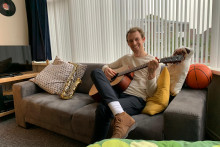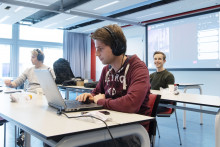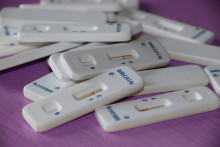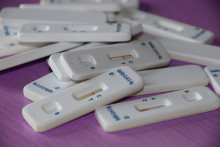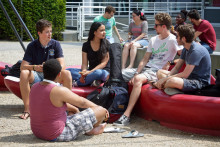Sharing their stories are Koen van der Veen (Technical Medicine) from the band Ciska de Rat, pianist and producer Wouter Achterberg (Creative Technology), as well as fellow CreaTe students Olivier Mathijssen, Robbert-Jan Berkenbos, and Bram van Driel from Modsy, a startup that created a new music controller which combines analog and digital elements.
Before the crisis, what were your musical plans for 2020?
Koen: ‘We had a big gig planned at the GNSK, and we were in the run for a place at the Eurosjopper festival. Our regular ‘flatfeesten’ gigs could also not go through. However, we did play an online set for the Kick-In.’
Wouter: ‘I was looking towards finding my own sound and also wanted to showcase that on stage. But while creating more music accelerated the process to figure out what I want to convey with my music, I only want to play gigs when I’m 100% happy with the product.’
Olivier: ‘Modsy was already a plan before the crisis. Covid-19 came as a bad time for prototyping, but it was not too bad for all the behind-the-scenes work.’
Robbert-Jan: ‘We had to make something of the time, which really got us to find a flow. In a way, we were forced to have more structure.’

Wouter Achterberg.
Did the crisis push or rather stop your creativity?
Koen: ‘It made me change my focus completely. Before the crisis, I was playing saxophone with the band, which was not possible anymore. That made me focus more on music I could make myself.’
Wouter: ‘It pushed my creativity a lot! I’m a classically trained pianist, and since I was home so often, I played the piano much more often. I get inspired to do different pieces when I’m home compared to when I’m somewhere else.’
Olivier: ‘I make a lot of music on nights when I’m bored. Now I have definitely been more creative since I had much more time on my hands.’
Robbert-Jan: ‘When Covid started, we had a break from university. Soon after that, I made and released my first single.’
Did the crisis change your sound?
Koen: ‘It truly did! I had more time to experiment and started playing guitar, which I will hopefully continue. But as a band, we try to adjust and change our sound regularly.’
Wouter: ‘Not necessarily. I didn’t do a 180° on the genres, but since the piano is at home, it became a bigger part of the music I create. Before the crisis, I focused a lot on electric pieces, now the piano is involved in all of them.’
Olivier: ‘Things are simplified, which translates to the music, for example by using the same kind of synths or drums. But many artists use the time to create personal content, which can be very inspiring.’
Bram: ‘Instead of going out to a club, I find myself more often in smaller circles which often had us collaborate and create something together.’
Robbert-Jan: ‘Bringing people together creates the music! There was a lot of inspiration in those sessions.’
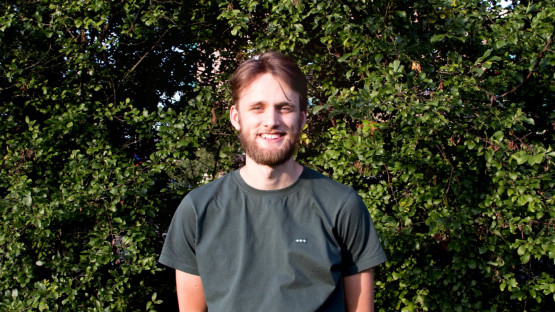
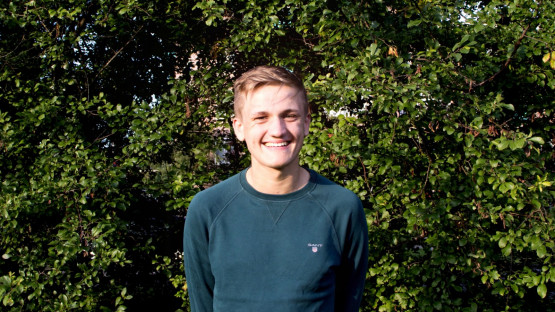
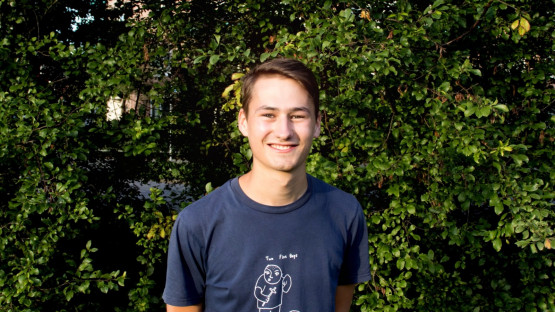
Modsy team members Robbert-Jan Berkenbos, Bram van Driel and Olivier Mathijssen.
What was the biggest challenge or change for you?
Koen: ‘Clearly that I picked up the guitar! The saxophone is quite different from the guitar. At least the crisis brought this positive change.’
Wouter: ‘To meet up with other people. It’s tough to go to live shows, to get out and get inspired. It’s easier for bedroom producers to release more, but you need inspiration, and that’s limited.’
Olivier: ‘The prototyping. It took a while to realize we couldn’t use the DesignLab or Incubase services that are usually very helpful. Now we had to buy equipment and consult other people.’
Bram: ‘Luckily, we were at a convenient stage with our startup, because we conducted our user testing beforehand. Now we want to roll out revised tests of the product, which will be a challenging time.’
Will your musical life change in a ‘Post-Corona-world’?
Koen: ‘I really started valuing the band a lot more. I had more time to listen and to practice, which I hope it carries through after corona.’
Wouter: ‘There will be outbursts of going to live gigs just because you missed it for so long. The most important aspect for me is how the crisis accelerated my productivity and direction, so I want to meet other people from the same community. The crisis made the feeling of wanting to showcase something live even stronger.’
Bram: ‘A lot of people right now buy music equipment. Maybe we will see a boom in output.’
Olivier: ‘People have a lot of time to plan events, so there will be a lot of creative ideas behind music events!’
Robbert-Jan: ‘Music is not made for profits. But a lot of DJs or producers don’t have much income and are now forced to invest even more in home equipment. Hopefully, those artists are able to have a stable income again.’

Koen van der Veen.


